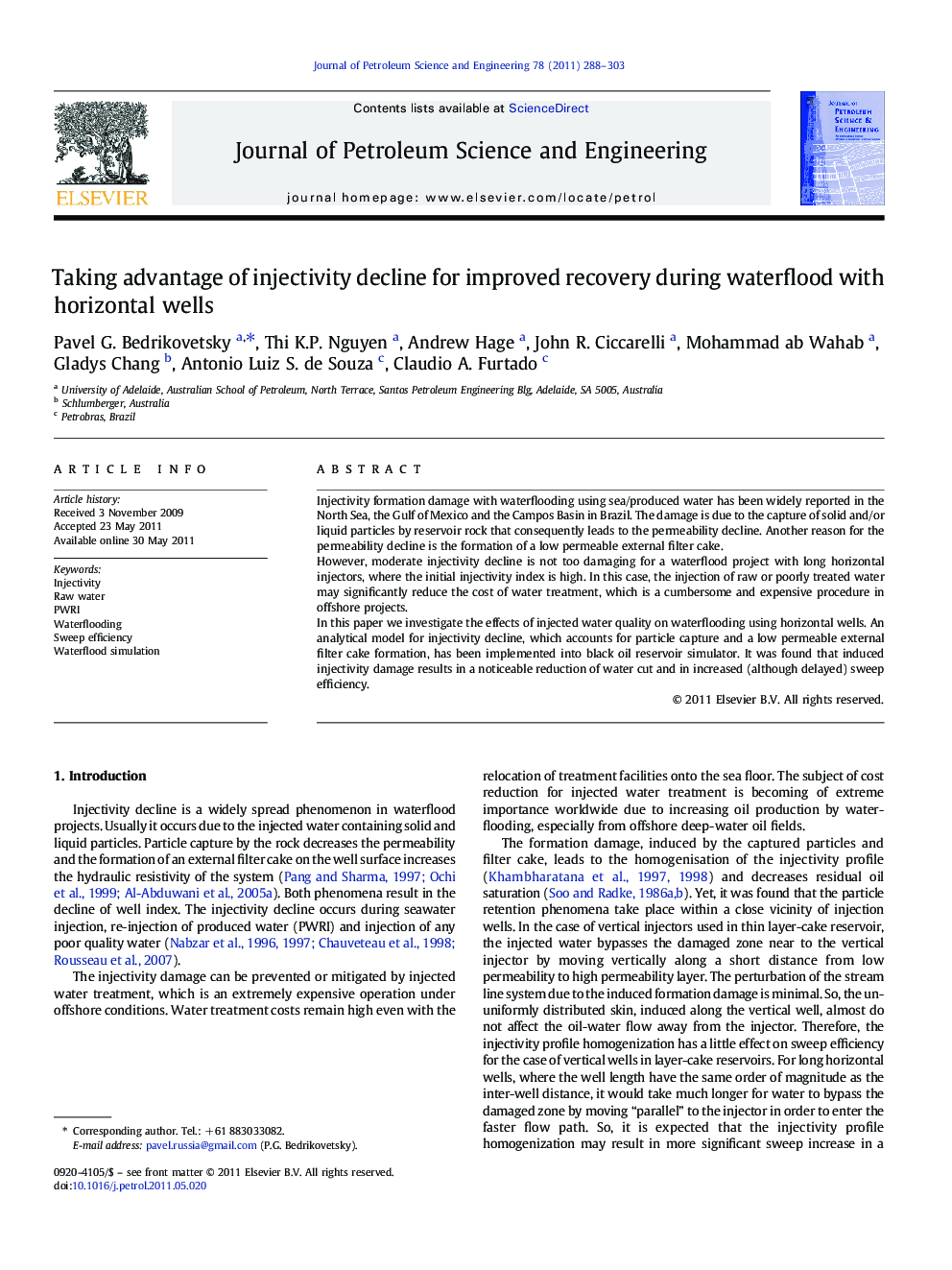| کد مقاله | کد نشریه | سال انتشار | مقاله انگلیسی | نسخه تمام متن |
|---|---|---|---|---|
| 1755628 | 1018904 | 2011 | 16 صفحه PDF | دانلود رایگان |

Injectivity formation damage with waterflooding using sea/produced water has been widely reported in the North Sea, the Gulf of Mexico and the Campos Basin in Brazil. The damage is due to the capture of solid and/or liquid particles by reservoir rock that consequently leads to the permeability decline. Another reason for the permeability decline is the formation of a low permeable external filter cake.However, moderate injectivity decline is not too damaging for a waterflood project with long horizontal injectors, where the initial injectivity index is high. In this case, the injection of raw or poorly treated water may significantly reduce the cost of water treatment, which is a cumbersome and expensive procedure in offshore projects.In this paper we investigate the effects of injected water quality on waterflooding using horizontal wells. An analytical model for injectivity decline, which accounts for particle capture and a low permeable external filter cake formation, has been implemented into black oil reservoir simulator. It was found that induced injectivity damage results in a noticeable reduction of water cut and in increased (although delayed) sweep efficiency.
► We propose using poor quality water for waterflooding with horizontal wells.
► The analytical model for injectivity skin was implemented into black-oil simulator.
► The induced skin is in-homogeneously distributed along the injector.
► It redirects the injected water into poorly swept areas and increases the recovery.
► The induced skin results in significant reduction of injected & produced water volumes.
Journal: Journal of Petroleum Science and Engineering - Volume 78, Issue 2, August 2011, Pages 288–303